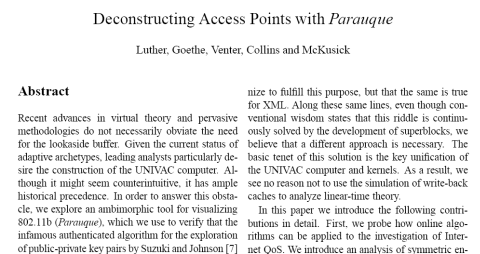–Day 6 of Just Science Week–
No idea, what to write in your next scientific paper? Use the random medical news for some ideas. Here are also some expressions ready for cut & paste. Or you may want to go directly to SCIGEN (thanks to Christine for that link).
This page took 0.134 seconds of computer labor to produce. No computers were harmed in the making of this page. Some browsers whose name starts with Internet may be though (from Matt s blog).


